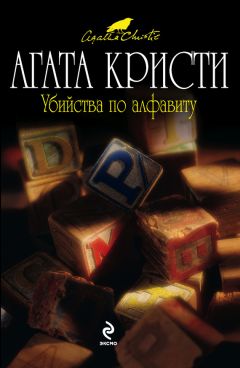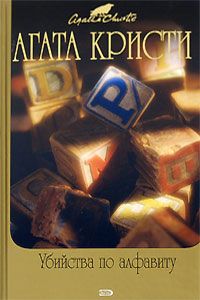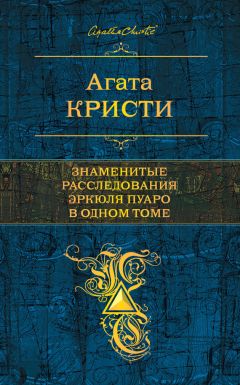Agatha Christie - Английский язык с Агатой Кристи. Убийства по алфавиту
WORK OF A HOMICIDAL MANIAC (работа маньяка-убийцы)
And below them (а под ними):
Only a month ago England was shocked and startled by the murder of a young girl (только месяц назад Англия была потрясена и поражена убийством молодой девушки), Elizabeth Barnard (Элизабет Барнард), at Bexhill (в Бексхилле). It may be remembered (вы, возможно, помните: «это, возможно, помнят») that an A.B.C. railway guide figured in the case (что железнодорожный справочник «Эй-би-си» фигурировал в этом случае). An A.B.C. was also found by the dead body of Sir Carmichael Clarke («Эй-би-си» был также найден у мертвого тела сэра Кармайкла Кларка), and the police incline to the belief (и полиция склонна верить) that both crimes were committed by the same person (что оба преступления были совершены тем же человеком). Can it be possible (может ли это быть возможным) that a homicidal murderer is going the round of our seaside resorts (что маньяк-убийца разгуливает по нашим морским курортам)?
headline [ˈhedlaɪn], startle [stɑ:tl], figure [ˈfɪɡǝ]
There were big headlines:
SIR CARMICHAEL CLARKE MURDERED
TERRIBLE TRAGEDY AT CHURSTON
WORK OF A HOMICIDAL MANIAC
And below them:
Only a month ago England was shocked and startled by the murder of a young girl, Elizabeth Barnard, at Bexhill. It may be remembered that an A.B.C. railway guide figured in the case. An A.B.C. was also found by the dead body of Sir Carmichael Clarke, and the police incline to the belief that both crimes were committed by the same person. Can it be possible that a homicidal murderer is going the round of our seaside resorts?
A young man in flannel trousers (молодой человек во фланелевых брюках) and a bright blue aertex[29] shirt (и ярко-голубой трикотажной рубашке) who was sitting beside Mr. Cust (который сидел рядом с мистером Кастом) remarked (заметил): "Nasty business — eh (отвратительное дело, да)?"
Mr. Cust jumped (мистер Каст подпрыгнул). "Oh, very (о, весьма) — very — "
His hands (его руки), the young man noticed (/как/ заметил молодой человек), were trembling so (дрожали так) that he could hardly hold the paper (что он едва мог держать газету).
"You never know with lunatics," said the young man chattily (вы никогда не знаете с лунатиками, — сказал молодой человек словоохотно). "They don't always look balmy (они не всегда выглядят придурковатыми; balmy — нежный, ароматный, благоуханный; глупый, придурковатый; balm — бальзам; благоухание), you know (знаете ли). Often they seem just the same as you or me (часто они кажутся такими же, как вы или как я) …"
trousers [ˈtraʋzǝz], aertex [ˈɛǝtǝks], balmy [ˈbɑ:mɪ]
A young man in flannel trousers and a bright blue aertex shirt who was sitting beside Mr. Cust remarked: "Nasty business — eh?"
Mr. Cust jumped. "Oh, very — very — "
His hands, the young man noticed, were trembling so that he could hardly hold the paper.
"You never know with lunatics," said the young man chattily. "They don't always look balmy, you know. Often they seem just the same as you or me …"
"I suppose they do," said Mr. Cust (я полагаю, это так: «они /выглядят/»).
"It's a fact (это факт). Sometimes it's the war (иногда это война) what unhinged them (что лишает их душевного равновесия; to unhinge — отпирать; выбивать из колеи, лишать душевного равновесия) — never been right since (с тех пор никогда /не бывают/ в порядке)."
"I — I expect you're right (я полагаю, вы правы)."
"I don't hold with wars," said the young man (я не одобряю войн, — сказал молодой человек; to hold with — соглашаться, одобрять).
His companion turned on him (его собеседник повернулся к нему; companion — товарищ; случайный сосед; собеседник). "I don't hold with plague (я не одобряю чуму) and sleeping sickness[30] (и сонную болезнь) and famine (и голод) and cancer (и рак) … but they happen all the same (но они все равно происходят)!"
unhinge [ʌnˈhɪnʤ], plague [pleɪɡ], famine [ˈfæmɪn]
"I suppose they do," said Mr. Cust.
"It's a fact. Sometimes it's the war what unhinged them — never been right since."
"I — I expect you're right."
"I don't hold with wars," said the young man.
His companion turned on him. "I don't hold with plague and sleeping sickness and famine and cancer … but they happen all the same!"
"War's preventable," said the young man with assurance (война предотвратима, — сказал молодой человек с уверенностью; to prevent).
Mr. Cust laughed (мистер Каст засмеялся). He laughed for some time (он смеялся некоторое время). The young man was slightly alarmed (молодой человек был слегка обеспокоен).
"He's a bit batty himself," he thought (он сам слегка тронутый, — подумал он).
Aloud he said (вслух он сказал): "Sorry, sir (простите, сэр), I expect (я полагаю) you were in the war (вы были на войне)."
"I was," said Mr. Cust (я был). "It (это) — it — unsettled me (выбило меня из колеи; to settle — поселиться; усаживаться; приводить в порядок). My head's never been right since (моя голова никогда не была в порядке с тех пор). It aches (она болит), you know (вы знаете). Aches terribly (ужасно болит)."
"Oh! I'm sorry about that," said the young man awkwardly (мне так жаль, что это /так/, — неловко = с чувством неловкости сказал молодой человек; awkward — неуклюжий, неловкий /о людях, движениях и т. п./; неудобный; затруднительный, неловкий).
preventable [prɪˈvent(ǝ)bl], unsettle [ʌnˈsetl], awkwardly [ˈɔ:kwǝdlɪ]
"War's preventable," said the young man with assurance.
Mr. Cust laughed. He laughed for some time. The young man was slightly alarmed.
"He's a bit batty himself," he thought.
Aloud he said: "Sorry, sir, I expect you were in the war."
"I was," said Mr. Cust. "It — it — unsettled me. My head's never been right since. It aches, you know. Aches terribly."
"Oh! I'm sorry about that," said the young man awkwardly.
"Sometimes I hardly know (иногда я едва знаю) what I'm doing (что я делаю)."
"Really (действительно)? Well, I must be getting along," said the young man (ну, я должен уходить) and removed himself hurriedly (и быстро удалился). He knew (он знал) what people were (какими /становились/ люди) once they began to talk about their health (как только они начинали говорить о своем здоровье).
Mr. Cust remained with his paper (мистер Каст остался со своей газетой).
He read and reread. (он читал и перечитывал).
People passed to and fro in front of him (люди ходили туда и обратно перед ним). Most of them were talking of the murder (большинство из них говорили об убийстве) …
"Awful (ужасно) … do you think (вы думаете) it was anything to do with the Chinese (это имело какое-то отношение к китайцам)? Wasn't the waitress in a Chinese café (не была /ли/ официантка в китайском ресторане)?"
hurriedly [ˈhʌrɪǝdlɪ], fro [frǝʋ], Chinese [ˈtʃaɪˈni:z]
"Sometimes I hardly know what I'm doing …"
"Really? Well, I must be getting along," said the young man and removed himself hurriedly. He knew what people were once they began to talk about their health.
Mr. Cust remained with his paper.
He read and reread …
People passed to and fro in front of him. Most of them were talking of the murder.
"Awful … do you think it was anything to do with the Chinese? Wasn't the waitress in a Chinese café?"
"Actually on the golf links (действительно на поле для гольфа) …"




